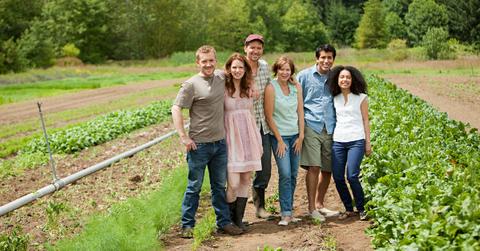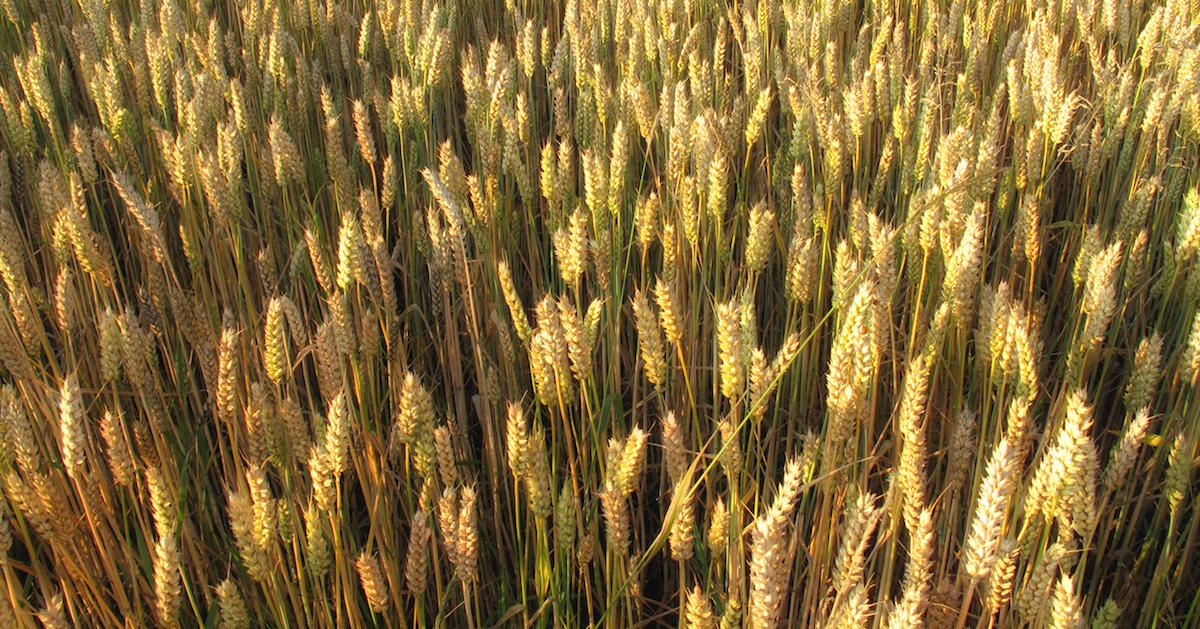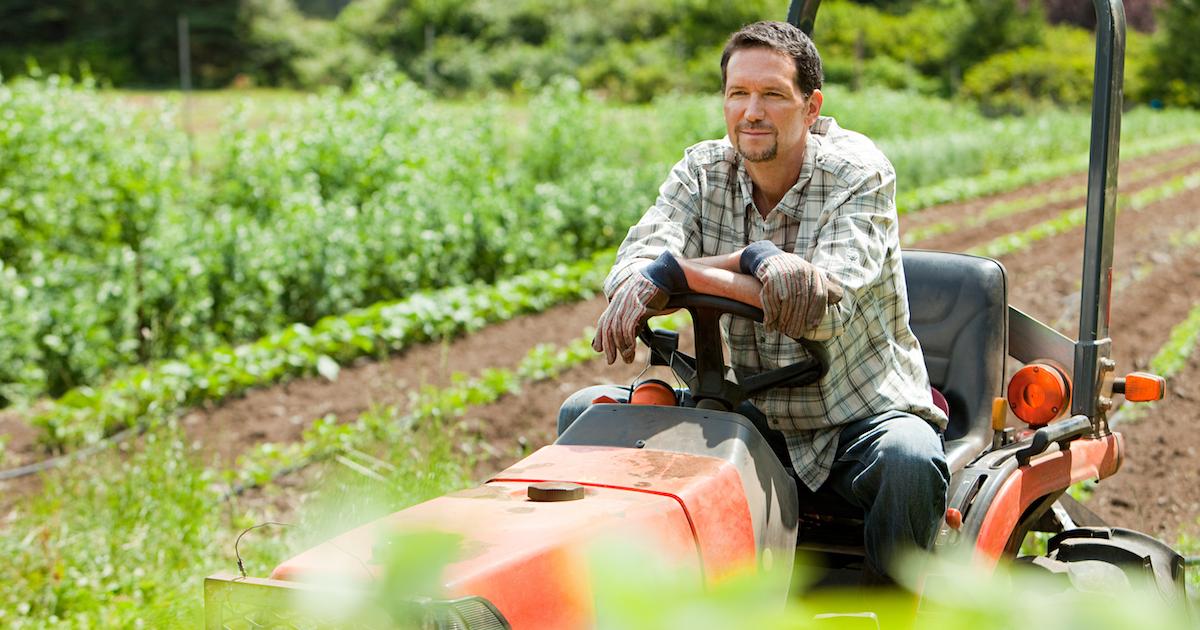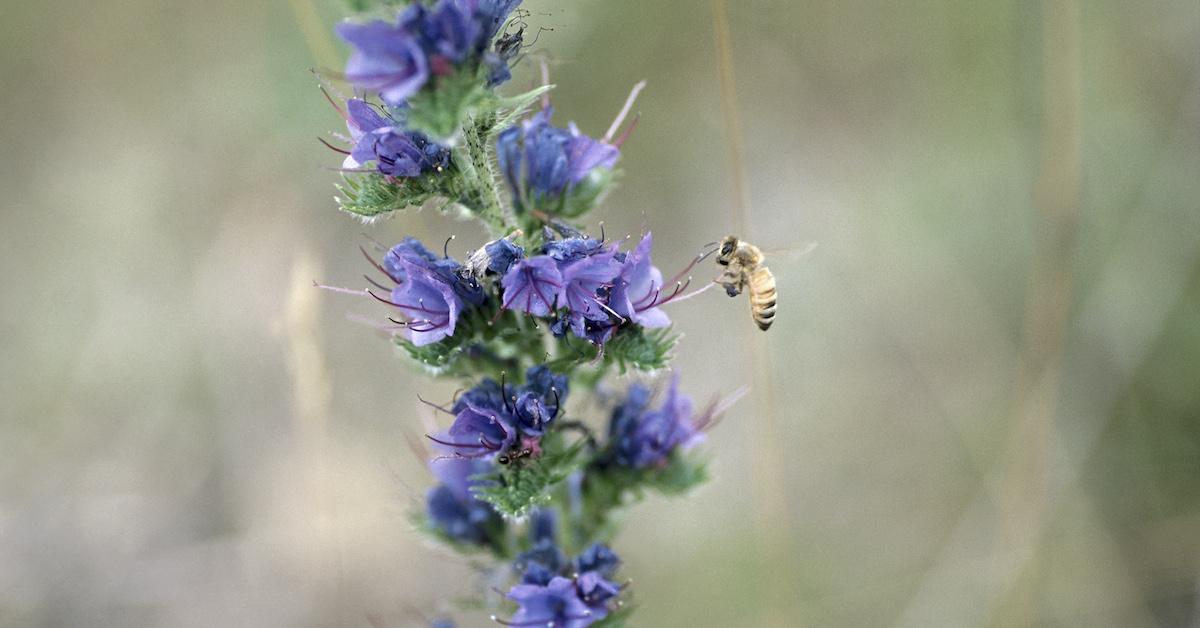What Is Organic Farming? Here's Why It's So Important
Published Dec. 15 2020, 12:12 p.m. ET

Many people assume that all farming is intrinsically organic by its very nature — but modern agriculture looks a great deal different than the pastoral pictures we see in our collective unconscious. The processes, contrivances, and methodologies of today’s farmers are not the simple, effective ones used by our ancestors. Much of this has to do with scale and growing food for a population hovering somewhere in the several billion. But if all farming isn’t strictly organic anymore, then what is organic farming?

What is organic farming?
According to Britannica, organic farming is a method of farming that uses natural pest control methods and biological fertilizers to grow crops, and does not use chemical or synthetic fertilizers and pesticides.
Many of these repellants and fertilizers are derived largely from animal and plant wastes, as well as nitrogen-fixing cover crops. Organic farming's purpose, at least by comparison to conventional farming, is to minimize or otherwise eliminate the damage that has been done to the environment and human beings by things like chemical pesticides, genetically modified organisms (GMOs), and synthetic fertilizer.
Is mainstream farming not organic, then?
Mainstream farming still has its organic components, of course. Seeds are still planted in the soil, and plants still grow the same way, but the practice is much less “natural” than that of those used by organic farmers. Organic farmers are sensible of the many environmental concerns that mainstream farmers take for granted. They understand things like soil erosion and conservation, the effect that pesticides have on living things, and the impact of these chemicals leaching into the foods we eat.
Non-organic farmers just don't seem too concerned with these issues — not when amending them might affect the bottom line.

Why is conventional farming so unconcerned about the environment?
Part of the problem has to do with scale. According to National Geographic, more food is needed than ever before, and so more yield is expected from everything that is planted. On top of the supply and demand issues, there is a lot of money involved in commercial farming operations. A lot of food, a lot of need, and a lot of money means that efficiency and cost-effectiveness are paramount for any large-scale farming operation.
This isn’t to say that commercial farmers cut corners by any means. In order for things to grow, certain practices need to be maintained. But there is a lack of consideration and foresight involved in the use of chemical pesticides, GMO-bred crops, and other such “modern” methods. According to The Washington Post, even governments have been unable to curb the use of these dangerous pesticides, likely because they also understand that in order for those farms to continue to feed 9 billion people, some sacrifices need to be made.
Slash-and-burn farming is a prime example of this lack of foresight. According to the EcoLogic Development Fund, farmland is clear-cut, farmed until the soil has lost all nutrients, and then abandoned for richer lands nearby. The problem is, once all the nutrients are stripped from an area, it becomes difficult to grow anything else there.
Other half-cocked methods of modern farming, including the use of saltwater for irrigation and the spraying of potentially cancer-causing chemicals like Roundup, destroy not only the land itself. They also hurt the people that the food has been grown to feed, as well as locals who get their drinking water and oxygen from the area.

How is organic farming different?
Organic farming makes use of recycling in a big way. It also makes use of the natural world in a far more effective way. Organic farmers use compost and excess animal waste to fertilize their crops rather than leaning on synthetic and potentially dangerous forms of fertilizer. Crops are rotated or planted in different ways to make better use of the soil and maintain nutrients across the seasons. This process of rotation is essential to the whole organic equation, at least according to Permaculture News.
Natural pesticides, those that don’t harm humans, animals, and especially bees, are used — if they are used at all. In fact, most organic farmers understand the importance of bees when it comes to pollination and cultivation, where commercial farmers don’t seem to understand that if the bees die out, so do we.

Is organic farming better?
Organic farming is not without its caveats. A study by CNN reported that yields of organic crops tend to be lower overall than conventionally-grown crops — 25 percent lower, according to some studies. This depends on the season and the crop, mind you, but there’s no denying that the considerations taken to grow crops organically certainly slows the process a little bit. In addition, the production methods involved in growing organic produce do tend to raise the price a bit more than that of conventionally grown food.
The price can be anywhere from less than 10 percent below to more than 100 percent above that of conventionally grown produce, according to Britannica. But that does not mean that organic produce is a “luxury” that people cannot afford. Like most eco-friendly endeavors, the cost for our future lies in the ability to make these eco-conscious practices more mainstream. By participating, we are enabling the processes and technology to become more affordable, accepted, and widespread.
Ultimately, the challenge for the future will be to find organic ways to maintain the environmental benefits of these practices while also increasing yields and reducing prices. This is no easy task, considering the consistent rise of the global population, but as long as people care about where and how they are getting their food, there might be a way to make it work.